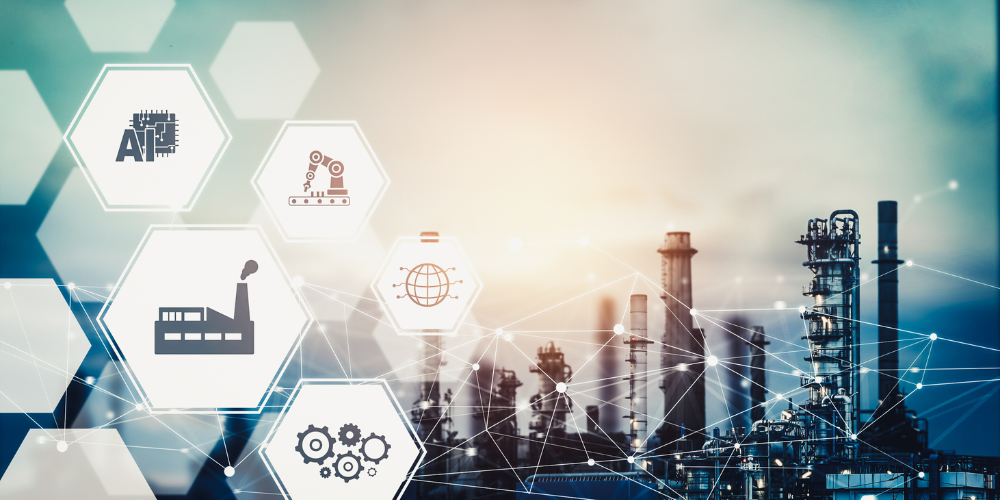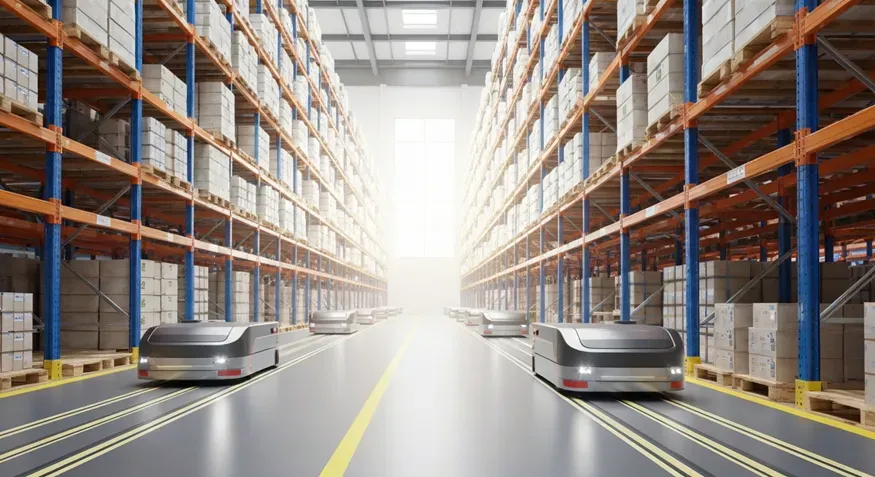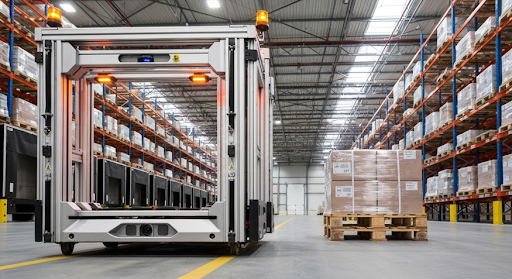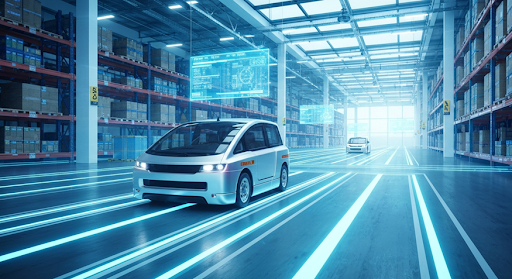Industry 4.0 Technologies
Industry 4.0 Technologies
Industry 4.0 industry in manufacturing PDF, also known as the Fourth Industrial Revolution, refers to the integration of advanced technologies into manufacturing processes to create smart factories and improve overall efficiency. This section will explore the various aspects of Industry 4.0 technologies and their impact on the machinery industry.
The four types of industrial revolutions are as follows:
1. The First Industrial Revolution: This revolution occurred in the late 18th century with the advent of mechanization through water and steam power, leading to significant changes in agriculture, textile production, and transportation.
2. The Second Industrial Revolution: Taking place in the late 19th century, this revolution was characterized by advancements in electricity, mass production techniques, and the introduction of assembly lines.
3. The Third Industrial Revolution: Also known as the Digital Revolution or Information Age, this revolution began in the mid-20th century with the rise of computers and automation technology.
4. Industry 4.0: This is considered as the current industrial revolution that we are experiencing today. It involves a fusion of physical systems with digital technologies such as artificial intelligence (AI), Internet of Things (IoT), cloud computing, big data analytics, and cyber-physical systems.
In terms of Industry 4.0 technologies used in the machinery industry, there are several examples:
1. Robotics and Automation: Advanced robots equipped with AI capabilities can perform complex tasks with precision and speed while enhancing worker safety.
2. Internet of Things (IoT): Connected devices embedded with sensors enable real-time monitoring of machinery performance for predictive maintenance and optimization purposes.
3. Big Data Analytics: By collecting and analyzing large volumes of machine-generated data, manufacturers can gain valuable insights for process improvement, quality control, and supply chain management.
4. Additive Manufacturing (3D Printing): This technology enables on-demand production without traditional tooling requirements while allowing customization options for complex components.
Is Industry 4.0 Still a Thing?
Industry 4.0 Technologies PPT
Industry 4.0 Technologies PowerPoint presentations are valuable educational tools that illustrate the various technologies driving the fourth industrial revolution. These presentations often include detailed slides on IoT, AI, robotics, and more, showcasing how these technologies are applied in manufacturing. They serve as a great resource for learners and professionals alike to understand the key concepts and real-world applications of Industry 4.0.
Industry 4.0 Technologies PDF
PDFs on Industry 4.0 Technologies are detailed guides that explain how modern tech is changing manufacturing. These documents cover a wide array of topics, from the basics of Industry 4.0 to in-depth case studies, offering readers detailed insights into how these technologies are reshaping industries. They're great for anyone wanting to learn deeply about these changes at their own pace.
Industry 4.0 Technologies Meaning
Industry 4.0 technologies refer to the blend of digital tools and automation in manufacturing. This includes things like robots, internet-connected machines, and data analysis to make factories more efficient. These technologies signify a shift from traditional manufacturing to smart factories where data and machine learning play a crucial role in operations.
Industry 4.0 Technologies List
The list of Industry 4.0 technologies typically includes the Internet of Things (IoT), artificial intelligence (AI), machine learning, big data analytics, and cybersecurity, among others. These technologies work in tandem to automate processes, enhance decision-making, and create more adaptable and efficient manufacturing environments.
Industry 4.0 Technologies Examples
Examples of Industry 4.0 technologies in action include autonomous robots on assembly lines, predictive maintenance using IoT sensors, and customized production through additive manufacturing. These instances highlight the practical benefits of Industry 4.0, such as increased efficiency, reduced downtime, and enhanced product customization.
Industry 4.0 Technologies PDF
Another Industry 4.0 Technologies PDF might delve into specific sectors within manufacturing, illustrating how these advanced technologies are being tailored to address unique industry challenges. It could provide detailed analysis, statistical data, and future trends, helping stakeholders make informed decisions about adopting Industry 4.0 solutions.
What is Industry 4.0 Meaning
Industry 4.0 Technologies Meaning
Industry 4.0 refers to the fourth industrial revolution, which integrates digital technologies into the manufacturing sector, leading to the creation of smart factories. It emphasizes the use of cyber-physical systems, IoT, AI, and real-time data analysis to enhance manufacturing efficiency and adaptability. The goal is to transform traditional production environments into interconnected and intelligent ecosystems that can self-optimize performance.
Industry 4.0 Books
Books on Industry 4.0 explore the concepts, technologies, and applications that characterize the fourth industrial revolution. They provide insights into how digital transformation is reshaping manufacturing, the impact of new technologies on industry, and strategies for implementing Industry 4.0 principles. These books are essential resources for professionals, academics, and anyone interested in understanding the future of manufacturing.
Industry 4.0 Examples
Examples of Industry 4.0 in action include smart factories where machines communicate with each other to optimize production processes, predictive maintenance using IoT sensors to prevent equipment failures, and customized manufacturing enabled by 3D printing. These examples demonstrate the practical application of Industry 4.0 technologies in improving efficiency, reducing costs, and enhancing product customization.
Industry 4.0 Technologies in Manufacturing
In manufacturing, Industry 4.0 technologies like IoT enable the monitoring and optimization of production processes in real-time. AI and machine learning algorithms analyze data to predict maintenance needs and optimize supply chains. Robotics and automation improve precision and efficiency on the production floor, showcasing how these technologies are integral to modern manufacturing.
Industry 4.0 in Manufacturing PDF
Industry 4.0 in manufacturing PDFs provide comprehensive guides and analyses on the implementation of Industry 4.0 principles within the manufacturing sector. These documents offer detailed insights into the technologies, strategies, and benefits of digital transformation in manufacturing, serving as valuable resources for industry professionals seeking to adopt Industry 4.0 practices.
What is Industry 4.0 Meaning
Industry 4.0 signifies the integration of advanced digital technologies into the industrial sector, heralding a new era of smart manufacturing. It focuses on creating interconnected systems where machines, devices, and processes communicate seamlessly to optimize production. This revolution is characterized by the fusion of the physical and digital worlds, leading to enhanced efficiency, productivity, and innovation in manufacturing.
What is Industry 4.0
Industry 4.0 signifies the convergence of digital technologies like AI, IoT, and big data with traditional manufacturing, creating interconnected and intelligent production systems. This revolution fosters smart factories where machines communicate and analyze data in real-time, enhancing efficiency and flexibility. It represents a paradigm shift in industry, emphasizing automation, interconnectivity, and real-time data-driven decision-making.
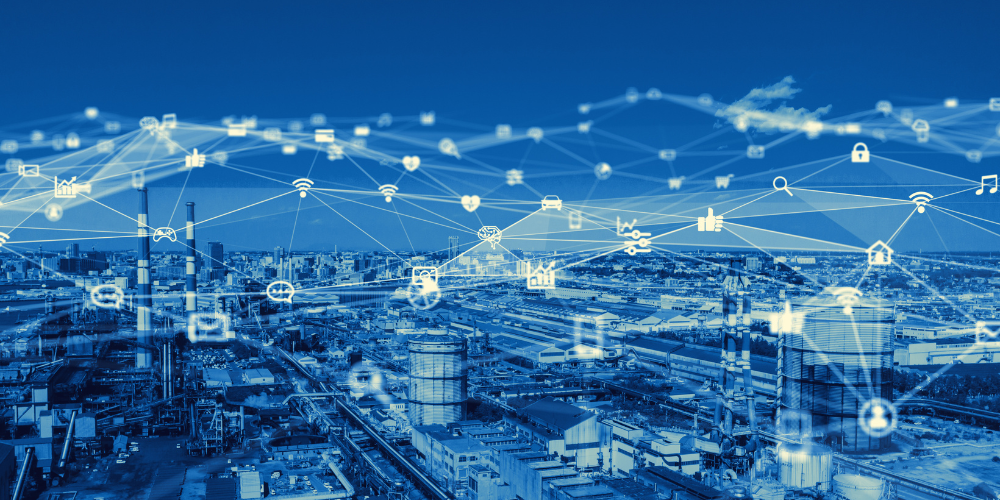
What are the Key Industry 4.0 Technologies All Explained in 10 Minutes
In a concise 10-minute overview, key Industry 4.0 technologies include the Internet of Things (IoT), which connects devices and machinery for data exchange; artificial intelligence (AI) and machine learning, which enable predictive analytics and decision-making; and robotics and automation, which enhance efficiency and precision in manufacturing processes. Other crucial technologies are cybersecurity, ensuring data integrity and system security, and additive manufacturing, such as 3D printing, which allows for rapid prototyping and production.
Key Impacts of the 4th Industrial Revolution
Industry 4.0, has significantly impacted the economy, workforce, and society by introducing smart automation and data exchange in manufacturing. It has led to increased efficiency, customization, and digitalization of production processes, while also challenging traditional business models and labor markets. These impacts necessitate a reevaluation of skills, policies, and strategies in the industrial sector to adapt to these rapid technological advancements.
Industry 5.0 Meaning
While Industry 4.0 focuses on technology and automation, Industry 5.0 brings the human touch back to manufacturing, emphasizing collaboration between humans and machines. It aims to enhance human ingenuity and creativity with the assistance of advanced technologies. Industry 5.0 seeks to create a more inclusive, sustainable, and resilient industrial ecosystem.
Industry 5.0 Examples
Examples of Industry 5.0 include robots designed to work alongside humans, enhancing safety and efficiency, or AI systems that adapt to human input to improve product design. These instances show a shift toward a more personalized, sustainable, and collaborative industrial environment. It also encompasses the integration of sustainable practices and materials in manufacturing, reflecting a commitment to environmental and social responsibility.
Fourth Industrial Revolution Skills
The skills required in the Fourth Industrial Revolution include advanced technical abilities like AI and robotics expertise, alongside soft skills such as creativity, problem-solving, and adaptability. These skills are crucial to navigate the changing landscape of industries shaped by digital transformation. As automation and AI become prevalent, there's an increasing demand for skills that complement technology, such as creativity, emotional intelligence, and ethical judgment.
What are the 4th Industrial Revolution Technologies
5th Industrial Revolution
The 5th Industrial Revolution focuses on harmonizing human creativity with advanced technologies, aiming to make industries more sustainable and personalized. These technologies are transforming industries, enhancing efficiency, and creating new opportunities for innovation and growth. As they evolve, they challenge traditional business models and redefine the interaction between humans and machines.
Industry 5.0 Advantages and Disadvantages
Industry 5.0 offers the advantage of combining human intuition with the precision of technology, leading to innovative and sustainable solutions. But it may also present challenges in workforce adaptation and technology integration. Balancing these factors is crucial for maximizing benefits while minimizing negative impacts.
Industry 5.0 Research Paper
Research papers on Industry 5.0 explore the interaction between advanced technologies and human expertise, analyzing how this collaboration can reshape industries for the better. They often provide insights into the practical applications and theoretical implications of this new industrial approach. They examine how this new paradigm can drive sustainable development, enhance competitiveness, and foster human-centric innovation.
Industry 5.0 PDF
Industry 5.0 PDFs provide detailed explorations of how industries are evolving to incorporate more human-centered technology, offering perspectives on how this shift can enhance both productivity and sustainability. These documents often serve as a valuable resource for understanding the principles and practices underlying Industry 5.0. They are essential for stakeholders aiming to stay ahead in the evolving industrial landscape.
Industry 5.0 PPT
Presentations on Industry 5.0 highlight the integration of human skills with smart technology, showcasing examples and strategies for businesses aiming to adopt this next wave of industrial innovation. They visually convey the concepts and potential impacts of Industry 5.0, making it accessible for a broad audience. They often illustrate the integration of technology with human ingenuity to enhance innovation and sustainability.
Industry 5.0 Meaning
Industry 5.0 signifies a shift towards a more human-centric approach in manufacturing, where the focus is on augmenting human capabilities with smart machines and sustainable practices. It represents a move towards more adaptive, resilient, and personalized production processes. This new industrial era underscores the importance of human touch and ingenuity in shaping the future of manufacturing and technology.
Industry 5.0 Technologies
Industry 5.0 technologies aim to enhance the collaboration between humans and machines, focusing on tools that support co-creation and innovation while emphasizing sustainability and ethical considerations in manufacturing. These technologies facilitate a closer human-machine interaction, fostering a more intuitive and responsive industrial environment. The integration of cognitive computing and human-centric design principles into industrial processes is central to realizing the vision of Industry 5.0.
